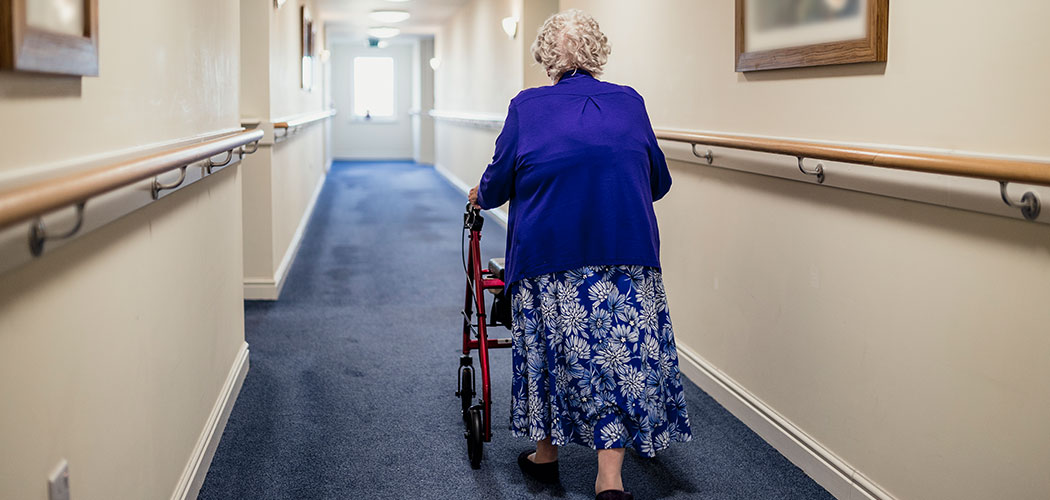The Australian Government is developing a new Aged Care Act, which sets out rules for things like funding, regulation, approval of providers, quality of care and the rights of people receiving funded aged care under the Commonwealth aged care system.
The New Aged Care Bill (2024) is set to replace the current Act, which has been in place since 1997 and has received criticism – including from the ANMF – for no longer being ‘fit for purpose’. The introduction of a new Act is the cornerstone of aged care reforms promised by the Albanese Government as part of their 2022 Federal election campaign and a key priority for the ANMF.
After several rounds of consultation, to which the Australian Nursing and Midwifery Federation (ANMF) provided submissions (see the ANMF submission to the Foundations of the Act and the Exposure Draft), the New Bill was introduced to Parliament on 12 September 2024. Once passed by the Parliament, the Bill will become the new Aged Care Act and is expected to commence from 1 July 2025.
The ANMF have provided feedback to the Government on the most current iteration of the Bill that was submitted to Parliament. The submission to the Community Affairs Legislation Committee on the Aged Care Bill 2024 [Provisions] (Bill) built upon the themes previously mentioned in the ANMF’s earlier submissions, with a keen focus on ensuring improved representation and protection for the workforce. The submission was underpinned by the work of the ANMF Federal Office’s National Policy Research Unit, Federal Office staff, and members of the ANMF Aged Care working group with representatives from the ANMF’s State and Territory Branches.
Chief among concerns highlighted by the ANMF was the lack of recognition of the importance of the aged care workforce as care providers and experts in the oversight and delivery of care to older people. The ANMF highlighted that the Bill currently lacks specific provisions that set a workforce quality standard to outline basic conditions that should be provided to ensure workers are supported to deliver high-quality care and achieve the objectives of the Bill. The ANMF made explicit that workers, including registered nurses (RNs), enrolled nurses (ENs), and personal care workers (PCWs), are the backbone of the aged care system, and without proper support, including staffing levels that ensure the right amount of people with the right skills are available, the quality of care delivered to older people will be reduced. The ANMF drew upon examples provided by our members working in aged care facilities that are not meeting care minutes and staffing requirements. These situations have led to the workforce being spread thin, staff working unpaid overtime and double shifts, workers having to perform duties outside their scope of practice, residents being left soiled for extended periods, distressed residents, and resident injury.
In the submission, the ANMF reaffirmed its position on direct care minutes, particularly as they relate to ENs and the need to better acknowledge the important role of ENs in delivering high quality aged care. The ANMF made recommendations to further increase care minute compliance through requirements for registered providers to employ adequate numbers of well-trained and supported staff to deliver high-quality direct care. This is to be supported through increased transparency and accountability in reporting on the part of providers.
While the ANMF views the New Act as a once-in-a-generation opportunity for genuine reform and a long-overdue improvement over the existing Aged Care Act 1997, some significant omissions remain. The ANMF highlighted that the Bill does not go far enough to ensure that the legislation will drive a sustainable, accountable, and high-quality aged care system that benefits all older Australians seeking or receiving aged care services, service providers, aged care workers, government and regulators. The ANMF remarked that ‘it would be disappointing if failure to undertake bold and fearless reform now simply results in the need for another Royal Commission at some point in the future’.
The ANMF is continuing to provide feedback and workforce advocacy on the New Act, with current public consultations open regarding the New Aged Care Act Rules.
The ANMF’s full submission on the Aged Care Bill 2024 is available here
Jarrod Clarke is a Research Assistant in the ANMF National Policy Research Unit (Federal Office) based in the Rosemary Bryant AO Research Centre, Clinical and Health Sciences, University of South Australia.
Casey Marnie is a Research Assistant in the ANMF National Policy Research Unit (Federal Office) based in the Rosemary Bryant AO Research Centre, Clinical and Health Sciences, University of South Australia.
Associate Professor Micah DJ Peters is the Director of the ANMF National Policy Research Unit (Federal Office) based in the Rosemary Bryant AO Research Centre, Clinical and Health Sciences, University of South Australia.









One Response
They also need to make dementia wings / wards exempt from aging in place as plenty of families refuse to move their loved one once the resident has become non ambient due to the current aging in place laws this is unfair on staff and families on waiting lists desperately needing a bed in a dementia wing or current resident in other parts of the nursing homes who keep escaping who needs a bed in a dementia wing but can’t have one due to families who just won’t move their relatives out